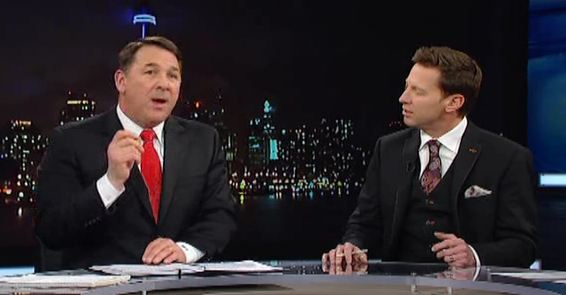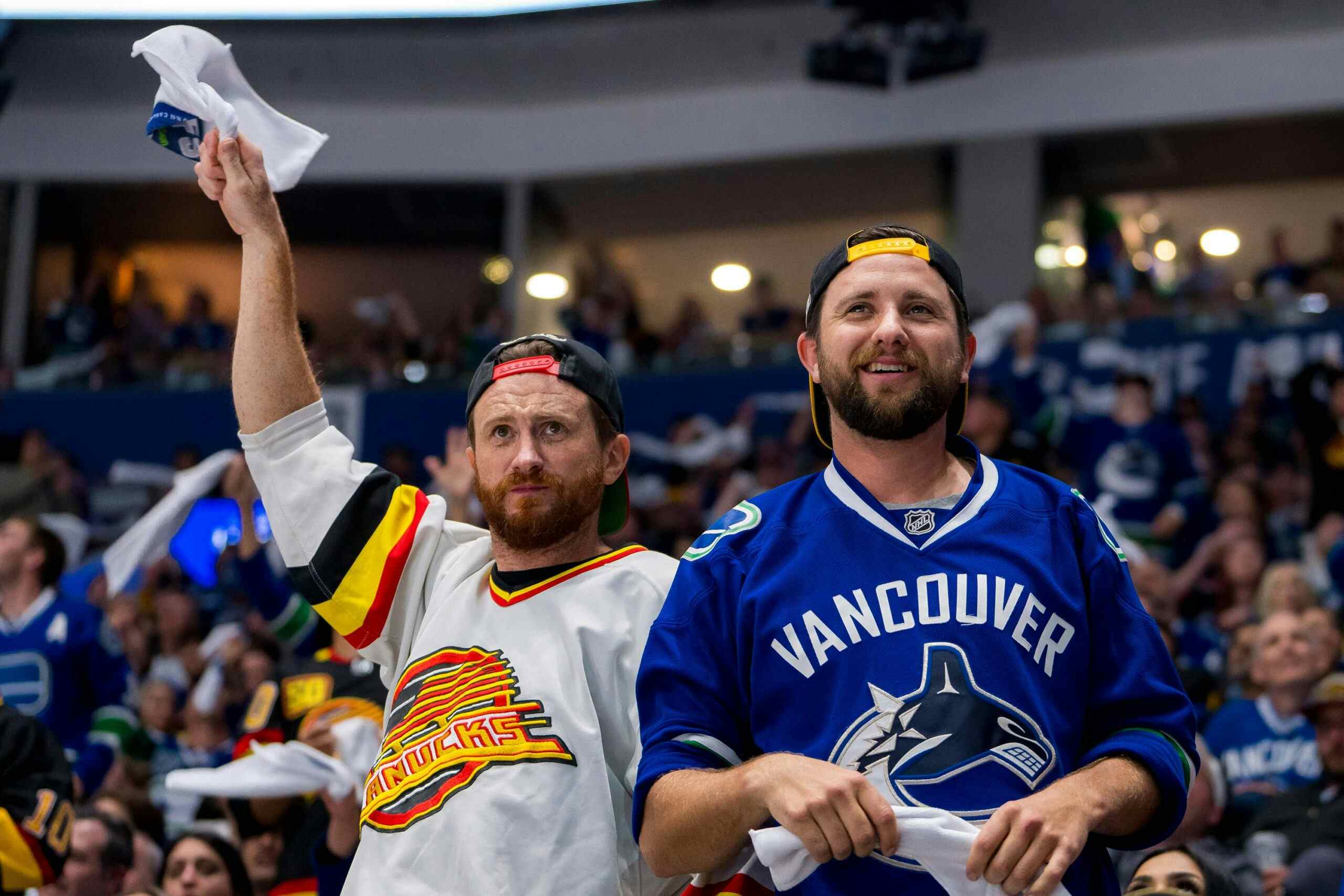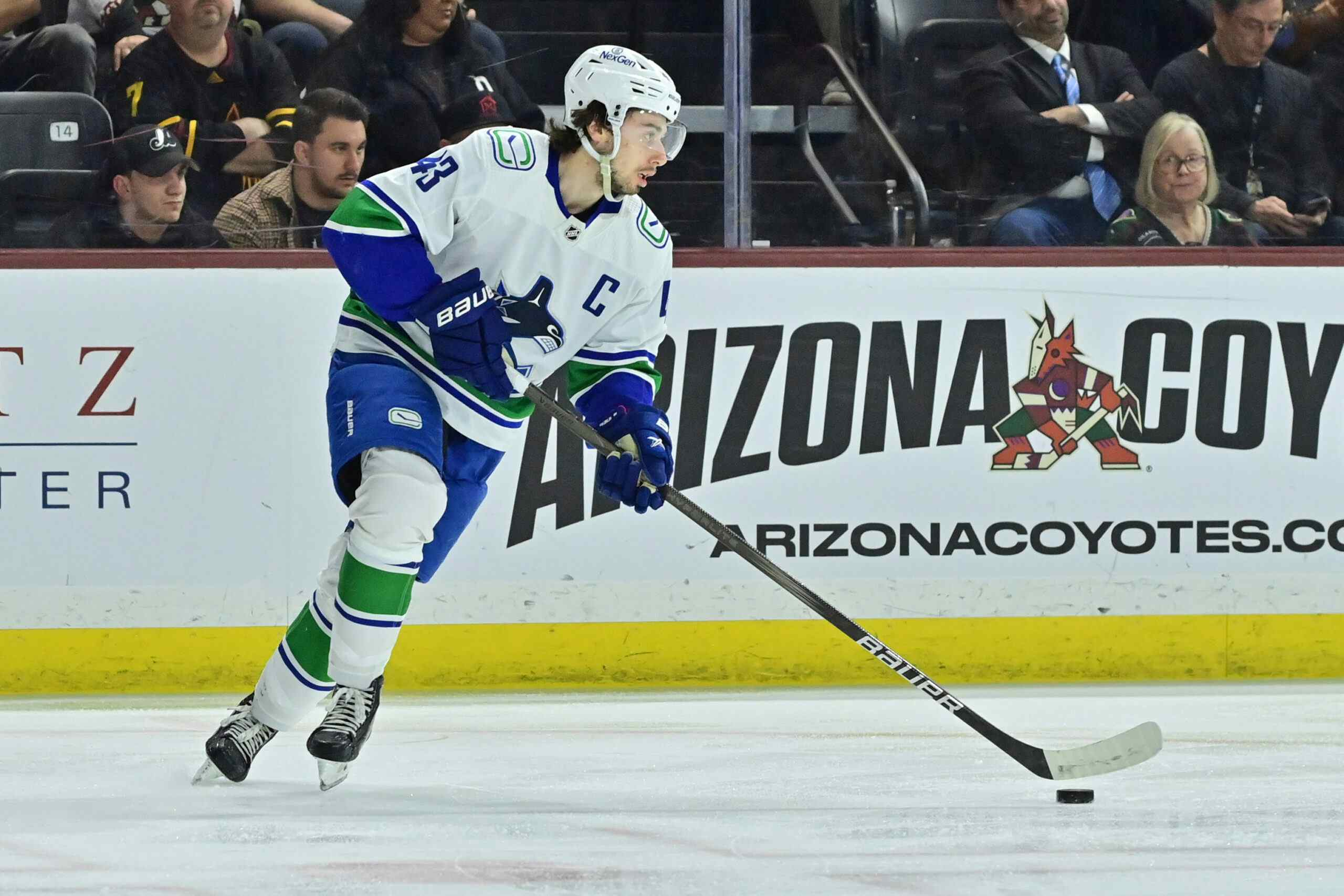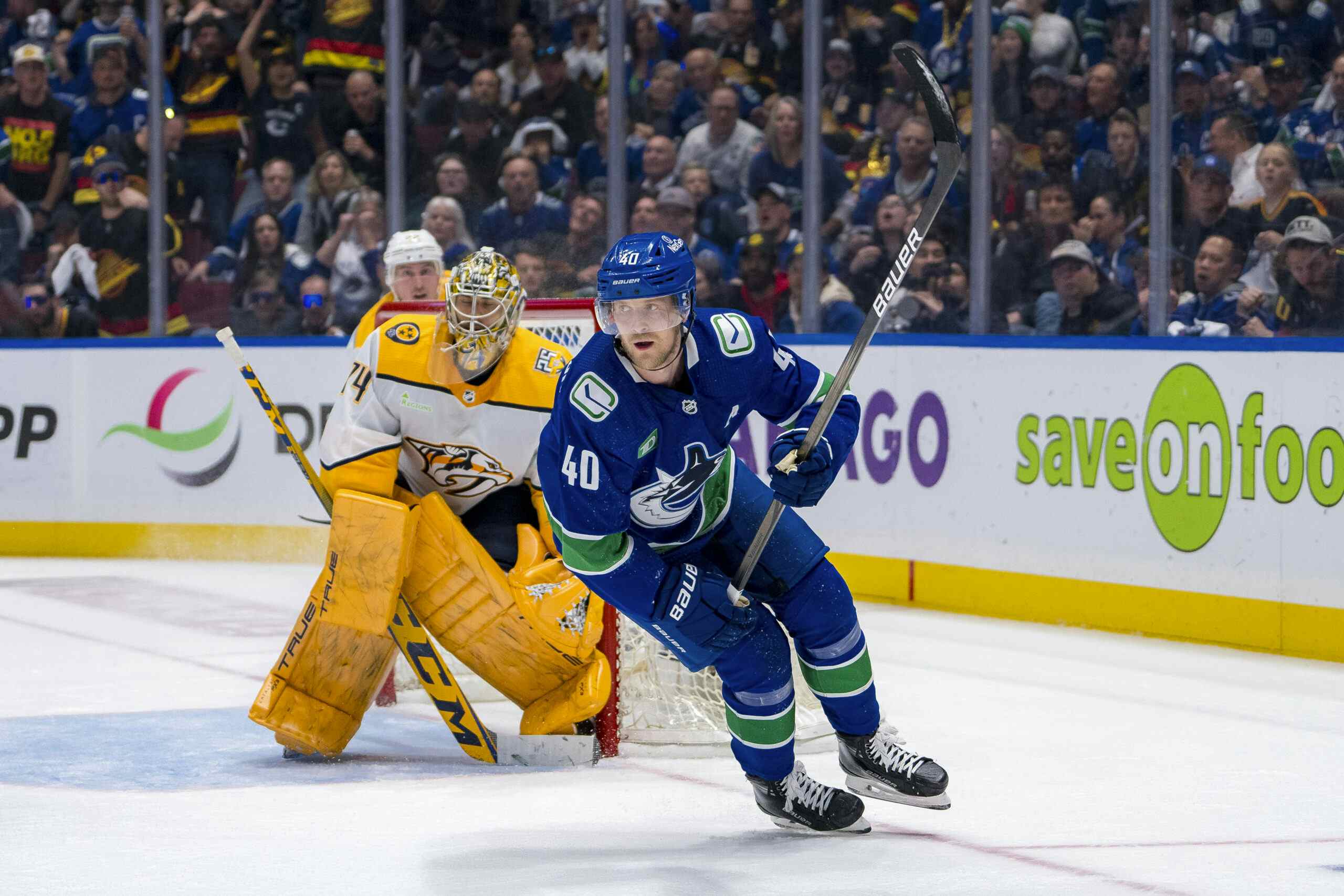Rising Action: On narratives

Rising Action is a sometimes weekly, sometimes bi-weekly column from Canucks Army writer Patrick Johnston which comments on issues in the media. This week, it’s all about the narrative.
Last weekend, as the stories were written about the events of the hotly-contested Canucks-Bruins game, I pondered on twitter whether we were seeing a turning point in the Canucks/Bruins narrative. Whether you are a Canucks fan or a Bruins fan, you know how it goes: the Canucks players are a bunch of whining, despicable, un-Canadian cheap shot artists and divers. The Bruins are tough, aggressive and honourable.
Canucks fans complain about the narrative, Bruins fans (and others) complain about the complaints of Canucks fans. Or so the story goes, anyway.
But just what the heck is a ‘narrative’?
We know that narrative is just a fancy word for story. There’s a beginning, a middle and an end. This is a limited definition. In cultural criticism, the notion of the narrative – also sometimes referred to as a ‘meta-narrative’ – holds a much heavier meaning. Narratives are representations of power, and those in power determine what makes up a narrative. The metanarrative of the Canucks vs Bruins became branded with a good vs evil paradigm, where the Bruins were Christ and the Canucks were Judas.
It is because of the desires of the powers-that-be to keep things simple that we are given Ron MacLean and the suggestions of a vendetta against Alex Burrows; or Don Cherry and his demands for attention to the plight of the goon; or Tony Gallagher and his insistence on broad NHL conspiracies. Reality, which is shades of grey, is much harder to explain within the context of the sports broadcast. Sports viewers are imbued with the notion that everything is about winners and losers, that winners deserve to win, that losers are somehow deficient.
How narratives get played really depends on the will power of those in authority. The more power held by the original speaker of the narrative, the better chance it has of taking hold. We all have commentators who we dislike, but they remain on TV. How does that happen? It’s about who they’ve made alliances with. Actual talent will usually only take you so far; although, of course, some commentators do get to the top because they really are worth it. They generally are considered from all sides to be the best. Hockey analysts like Darren Dreger, Bob McKenzie or Elliotte Friedman give the story ‘how it is’. They have a role, which has biases, but they don’t got beyond their knowledge base and seek to build grand theories about how ‘the game should be’. If they are speaking broadly, it’s because they’ve done research, and are trying to detach themselves from their own emotional reaction to the story. ‘How the game should be’? That’s left to others.
The commentators who face the most criticism are the ones who follow on. These are the commentators who get themselves into authority by ‘towing the company line.’ Be willing to agree with those we are on top and be vocal about it, and you will find yourself on TV. The stories are out there, stick to what’s being talked about, don’t rock the structure. If you are playing the anti-establishment card, keep doing that, you’ll get a moment. If you are puppeting the words of your local team, keep with it too, there are enough fans about who just want to know the nuts and bolts of their team. This trend plays itself out in different ways. This is how a guy like Eric Francis ends up on Hockey Night in Canada, or Joe Haggerty gets his day with the Stanley Cup, or Mike Brophy somehow becomes an in-studio analyst for Sportsnet, or Barry Macdonald becomes a talking head on the Team 1040.
It’s a willingness to talk about an issue, and be pretty decent at taking some sort of position. The deeper truths, the ones which actually get ignored in the name of a story, regularly run into problems because the audience too often accepts a mere taking of a position as being enough. Unfortunately we should expect more from our commentators; they should have actual, cogent, well-thought out reasons for their positions.
This is why Max Lapierre is still considered a player who is unwilling to face the music. It doesn’t matter that’s actually fought five times this year. Or that Shawn Thornton is a tough guy who does it right, even if, as it turns out, he tried to jump Dale Weise. None of us are perfect, but the stories somehow become so.
Given a system that tolerates simple position-taking, you can’t really fault these guys for doing what they do. They have (mostly) worked hard after all, and these roles exist because the alternative, let’s be honest, even if the current setup is too basic, would be monstrously boring. If everyone said the same things about the world, or hockey, or whatever, we’d be in a pretty dull place. Conflict keeps them employed. Stories, whether they are fiction or real life, are only interesting if there is conflict to start with. Eventually, however, we do align ourselves with an ‘echo-chamber’ – the natural desire to hear opinions which line up with our own view of the world. The audience does tire of hearing opinions which are upsetting,or frustrating, or seemingly poorly thought out.
Where these commentators can be engaged, and potentially criticized, is the turf where they are making their decisions. Do they truly believe what they are saying? Or are they just going along with it to make a buck? If it the’s former, then so be it. The latter, though, is where the paying public should be more active. Saying something for the sake of a buck is lazy commentating. Got a cool stat? Give the viewers some context for that cool stat. It’s your job to tell the viewers something they couldn’t have though of themselves.
We must also consider the actions of the audience as well. When we turn on Hockey Night in Canada, we are in many ways accepting the broadcast. But we should think we are voiceless in the transaction. What gets said there is a direct result of what those in power (a) want the audience to believe and (b) believe the audience want to believe. Is Eric Francis on the Hotstove because he breaks incredible stories, or because he serves as a foil? The panel can’t simply sit there an agree with each other, that’s boring. But are the people being chosen for the right reasons? Commentators should bring actual data with them, not just suggestions about the attitude of certain players who don’t fit into the a broader, power-determined narrative. That’s how loyal soldier Ales Hemsky gets turned into an ungrateful malcontent. Could it really be that after years of service, he’s frustrated by playing for a sad-sack team? No, it must be because he’s a moaner.
Narratives eventually align with the echo chamber. Without even realizing it, we’ve dismissed alternative viewpoints and accepted the stories being told to us by those in authority. Who is in authority? Sometimes the naturally talented, but more often it those that spent time making friends and allies who end up on top. Putting up with nonsense is how they’ve risen to the top. Once those alliances are understood, it’s clear why certain narratives appear.
The power structures settle on a story. The underlings who are hoping to one day rise to the top go along with the story. The story gains a life of its own. In the fast-paced environment of television sports, it’s difficult to stop and stand back for a moment and ask, ‘but is this actually correct?’
Narratives come from the decisions of those in power. Sometimes they are conscious decisions. Sometimes they grow from random chance. Sometimes they suffer from a lack of perspective. Spend too long looking at one part of the story and it might become the whole story.
Let us finish by considering, a final time, the Canucks vs Bruins game from last Saturday. The narrative which has emerged is in many ways the complete opposite of that which was told last June. It helped that Brad Marchand committed an act which most fans would call unacceptable. But what else happened? The Canucks scored. They scored and they won. If the Canucks’ powerplay had been successful during the Stanley Cup final, it’s a much closer series. (An odd statement for a 7-game series, but you know what I mean.)
All of a sudden the Canucks were successful in their game strategy and the Bruins were a group of undisciplined dummies who forgot how to play their game. That’s the top-down view. But look deeper, and in many ways the way the story played out was no different from last spring. The Bruins dominated the Canucks at even strength. They also scored three goals. Maybe a change in goalies *was* the story, but maybe not. The narratives about last weekend’s game and last year’s series considered goaltending but were dominated by the consequences of physical play.
In the end, shouldn’t the narrative really be that successful teams push the limits of acceptable behaviour?
Narratives are about control. They make it easy for the casual, disconnected follower to understand how things work. They keep things simple for the story tellers. But they aren’t easy to break down. Want a better story told? Be more demanding of those making the decisions. That will take effort and consistency. That will take a re-organization of the power structures which set the narratives.
Are the Canucks deserving of criticism for aspects of how they play the game? Yes. Should the Bruins have been called out sooner for what some of their players do? Definitely. The notion that a team can be wholy honourable or wholy despicable doesn’t fit reality.
The dominant narratives of modern hockey, despite plenty of easy-to-find data, remain driven by casual analysis and a lazy audience.
Be more active in your fandom and demand better of those who are giving you the stories.
Recent articles from Patrick Johnston





